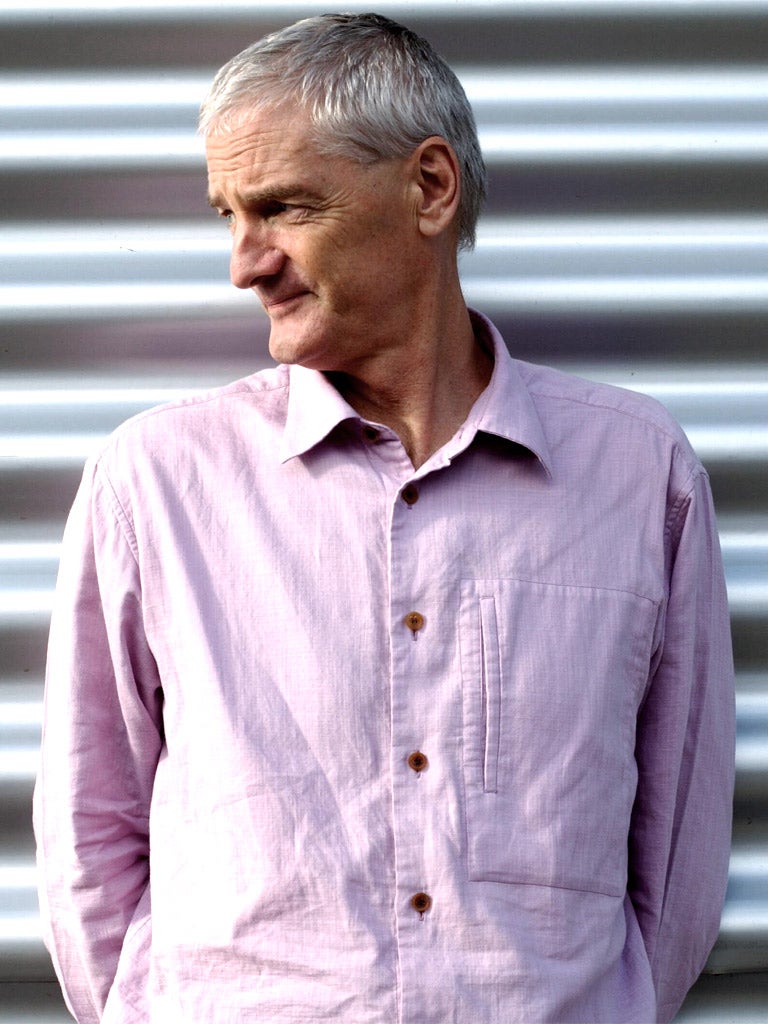Problem solvers wanted
Sir James Dyson's innovation awards inspire some of the smartest and oddest new inventions. Will this year's crop change the world? Tim Walker finds out

Problem solvers wanted: that's the motto of the James Dyson Award, given by the great designer and his foundation to design students whose inventions "solve a problem". That problem can be as small and simple as too-cool toast, and as large and complicated as a severe drought.
This year the competition has had more than 500 entries from 18 participating countries, and the 2012 UK winner – which will go forward to the international competition – is the SafetyNet: a device to improve the sustainability of trawler fishing.
A low-maintenance illuminated ring that can be retrofitted to any trawler net, the device prevents holes in the net closing during trawling, and guides younger, smaller fish to the exit, so that only large fish are caught.
Dan Watson, who designed the SafetyNet, is 26. At school, he expressed an interest in industrial design and was sent by one of his teachers to meet Bruce Brenner, a designer at Dyson, who advised him to study mechanical engineering.
Watson took his advice, and while studying Project Design Engineering at the University of Glasgow and Glasgow School of Art, he says, he read an article about Scottish fishermen being arrested in Norway for throwing fish back into the sea.
"I was looking for a problem for my final year project, and this was something interesting that I could investigate and immerse myself in. I went to fishing communities in Scotland to speak to people and understand the problem; I went out on trawlers; I read up on past experiments to see what phenomena might be useful [such as the responses of fish to light]. Fishermen who use sustainable fishing gear are allowed extra days at sea, so the system could pay for itself very quickly.
"The idea was to try to find a solution that would work for all the involved parties – the fish included."
After graduating from Glasgow, Watson returned to London and the Royal College of Art's Innovation Design Engineering course. (His father and uncle were both RCA grads, too.) "I worked on a group project to develop a new visual password system, and a solo project looking at human emotions and how you might use them to communicate levels of risk to people. SafetyNet was in the background. It's taken me three years so far."
Last year's UK winner was Michael Korn, 31, the inventor of the KwickScreen: a portable, retractable room divider for hospitals. It's now in use not only across the NHS, but also in Korea, Turkey, Holland, Ireland, Belgium and Canada. Korn was inspired to create the screen after hearing about the space problems in hospitals from his sister, a doctor. Korn, who also studied Innovation Design Engineering at the RCA, said: "The award gave the NHS customers that extra bit of confidence and credibility, so our sales skyrocketed."
Watson's SafetyNet will now compete in the £10,000 international award, the winner of which will be named on 8 November. Last year's winner was the AirDrop, which captures water vapour from the air and feeds it back into the soil in arid farming areas. It was designed by Edward Linacre, from the Swinburne University of Technology in Melbourne.
Watson says the £1,000 prize money for the national award will allow him to do more testing on the SafetyNet, while the exposure has attracted others keen to help with trials before it goes into production.
Though he plans to see his successful invention through to completion, Watson is eager to move on to new projects, too. "One of the reasons I got into design is that the need changes so frequently and massively. There are always so many interesting problems out there to solve."
Subscribe to Independent Premium to bookmark this article
Want to bookmark your favourite articles and stories to read or reference later? Start your Independent Premium subscription today.

Join our commenting forum
Join thought-provoking conversations, follow other Independent readers and see their replies